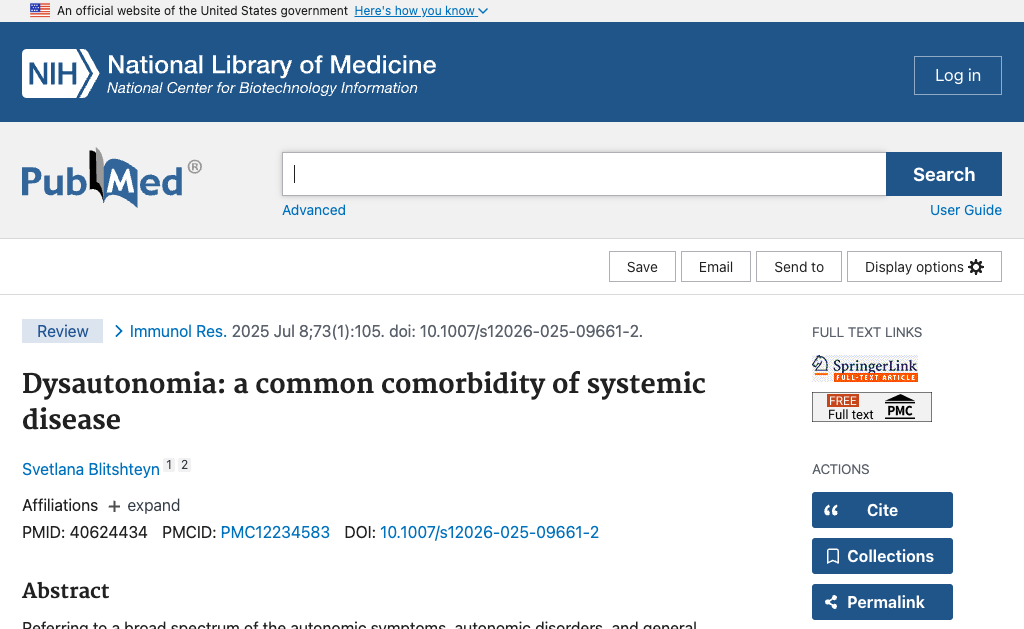Dysautonomia: a common comorbidity of systemic disease.
This paper highlights dysautonomia—especially POTS, neurocardiogenic syncope, and orthostatic hypotension—as a common, under-recognized comorbidity across systemic diseases (e.g., diabetes, autoimmune disease, vitamin deficiencies, hormonal disorders). Key symptoms include orthostatic dizziness/lightheadedness, palpitations, orthostatic intolerance, exercise intolerance, brain fog, and fatigue, which are often misattributed to psychiatric causes. The author recommends a high index of suspicion and simple in-clinic testing such as a 10‑minute stand test or tilt-table testing, with additional autonomic function tests when available. Management is multimodal: nonpharmacologic measures (e.g., fluids, salt, compression, physical reconditioning) plus pharmacologic options tailored to phenotype, including beta blockers, midodrine, ivabradine, pyridostigmine, fludrocortisone, and occasionally stimulants. Prompt recognition and treatment can markedly improve outcomes in complex, multi-system patients by addressing an often-missed driver of symptoms.
